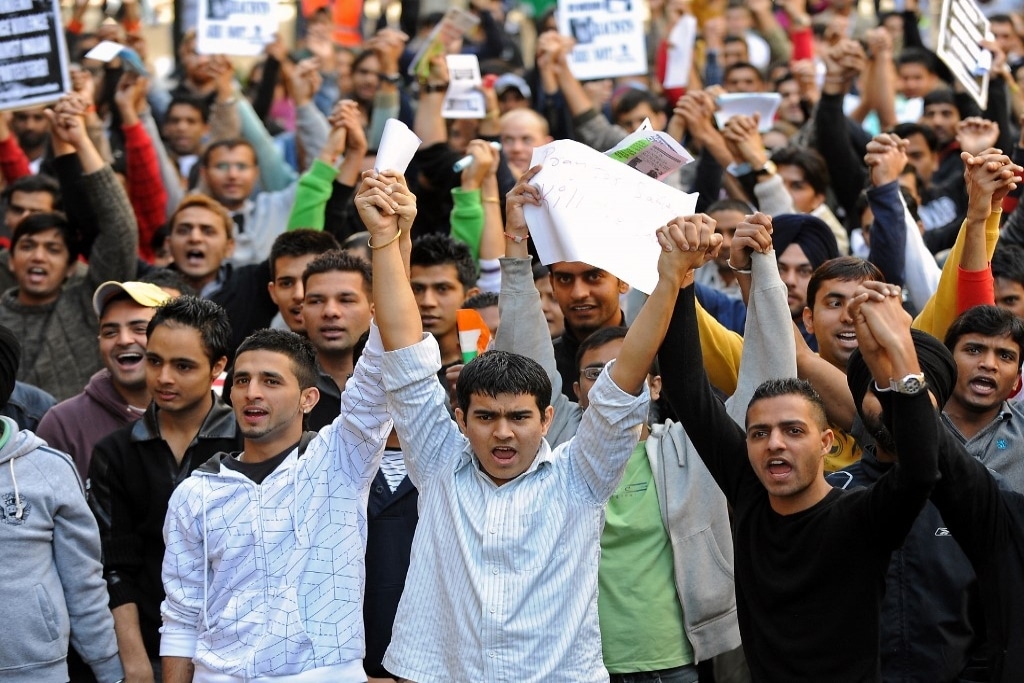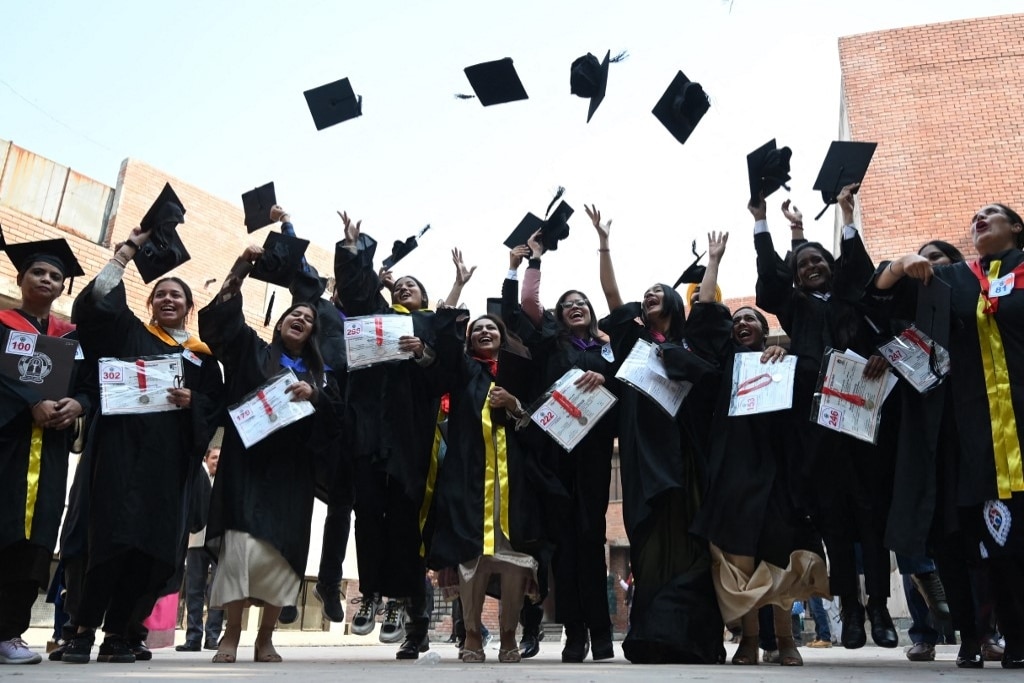While it’s already 2025, racism is still prevalent in many countries, especially for Indian students.
Countries like Iran, Belarus, Bahrain, and even South Korea rank among the worst countries for racial equity according to US News & World Report.
Not every country treats its international students fairly and kindly; that’s why it’s important to do research, like looking up the least racist countries for Indian students

The number of Indian international students continues to grow overseas, especially in the least racist countries for Indian students. Source: AFP
The least racist countries for Indian students: why is it important to know them?
Every year, many Indian students choose to study abroad, seek opportunities and experience life beyond their home country. It’s a good opportunity to explore new cultures, enhance their skills, meet new people and even learn a new language.
In 2021, there were about 1.09 million Indian students studying abroad in 85 different countries.
This number has since declined, dwindling to 759,000 in 2024, with reasons attributed to policies in Australia, Canada, and the UK, including growing unease about President Trump’s treatment of immigrants that are depressing Indian student demand for study in one of the Big Four destinations.
Choosing to study abroad, however, comes with its own set of challenges. When Indian students live in a foreign country, racial discrimination often comes hand in hand with this.
Experiencing this can take a toll on international students and cause psychological distress. Some cases even escalate to bodily harm; in Australia, two international students were assaulted.
Devarshi Deka was left a paraplegic after he was allegedly assaulted. Deepinderjeet “Deep” Singh drowned when he was allegedly pushed into the Hobart harbour in an alleged attempted robbery.
While eradicating racism completely is going to take some time, the government and universities can take action to reduce the amount of racial discrimination that international students face.
Several countries have begun to take steps towards making their countries more accommodating and welcoming for international students, particularly Indian ones. So if you’re an Indian student looking to study abroad, here is a list of the least racist countries to study in:

Strong laws and policies against racism are crucial to be one of the least racist countries for Indian students. Source: AFP
Five best countries with the least racism against Indian students:
These five countries rank best for racial equity according to US News & World Report.
Denmark
Denmark tops the list for countries that are the least racist towards international students, including Indian ones. It’s a popular destination for higher education, offering quality education, English-taught programmes, and a welcoming local community.
The country has enacted strong anti-discrimination laws, such as the Act on Ethnic Equal Treatment (Act no. 374 of 2003), that prohibit differential treatment based on race.
The government has also taken steps to improve the handling of hate crimes by strengthening police and prosecution services and enhancing police training in these specific areas.
It’s also one of the happiest nations in the world, ranking 2nd globally in 2025.
New Zealand
New Zealand is considered one of the best countries in the world for international students. It is praised for its safety, peace, cleanliness, and diverse population.
As such, many international students choose to study in New Zealand — this includes Indian students.
The country is leveraging scholarships, streamlined visa policies and strong post-study work opportunities to attract global talent. A projected 95,000-100,000 students entered the country in late 2024.
The Human Rights Commission launched the country’s first anti-racism campaign. In just a month, they reached four million people, and this number continues to rise.
NZ universities have also made an effort to fight against racism. The University of Waikato, for example, is aiming to become the country’s first anti-racist institute.

In the 2025 World Happiness Report, the Netherlands ranks 5th in the world. Source: AFP
The Netherlands
The Netherlands is one of the least racist countries for Indian students, and is home to quality education with many job opportunities. In 2024, the country admitted 3,504 Indian students, all studying across top-ranking universities.
Kavana Desai, author at Dutchreview.com, says, “Coming from India, where being overly polite goes a long way, Dutch directness was one of the most refreshing things for me to experience.”
But as blunt as the Dutch are in their mannerisms, they are very tolerant towards outsiders, or non-Dutch people.
Several agencies, such as the Public Prosecution Service and the anti-discrimination services, are involved in the fight against discrimination. The Netherlands has legislation that prohibits direct discrimination, indirect discrimination, harassment (including sexual harassment) and victimisation.

Finland is most popularly known for being the happiest country in the world. Source: AFP
Finland
Not only is Finland one of the happiest countries in the world, but it is also one of the least racist countries for Indian students.
Despite the recent proposed hike in tuition fees, students continue to consider it a preferable option due to the country’s safe, clean, and diverse environment.
The country’s Constitution and the Non-Discrimination Act prohibit discrimination based on ethnicity, nationality, and religion. There is a zero-tolerance policy toward racism, making it a safe place for international students.
Additionally, immigration has increased Finland’s diversity in recent years, and many support programmes promote work-related immigration and integration.
Canada
Aside from its beautiful landscapes, Canada is known for being peaceful, extremely friendly and having a multicultural environment.
While the country has become the second most popular study-abroad destination among Indian students, Canada has also introduced a cap on new study permits and changes in work eligibility. Full-time students will no longer be permitted to work in excess of 20 hours per week
But despite these changes, the country’s multicultural and welcoming nature allows Indians to feel safe and supported. There are set laws and programmes that protect its people against discrimination, which includes gender, race or ethnicity.
Disclaimer: This article was last updated on April 16, 2025.

